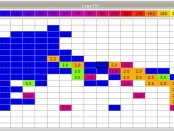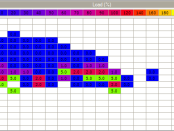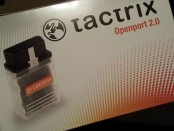Colt Ralliart 2 Byte Load
If you have ever logged your ECU Load on a stock Ralliart Colt or Colt Version R, you might have noticed it peaks at 159.375. According to Merlin’s EVO guides, it equates to somewhere between 11 & 15 psi: Boost vs EcuLoad For colts, I’ve found 160 load to equate to around 13-15psi. But most of us are running higher? How can we reliably tune the car when ECU Load stops reporting load past 14psi? The answer is 2 byte load. Colt Ralliart 2 Byte Load Evoscan (and Tactrix SD card) logging can handle something called 2 byte load but to do that some changes are needed to your MUT table, and also your logging configuration. Before we get into that, some more background. ECU Load is only 1 byte load. To log it, only one MUT [...]


